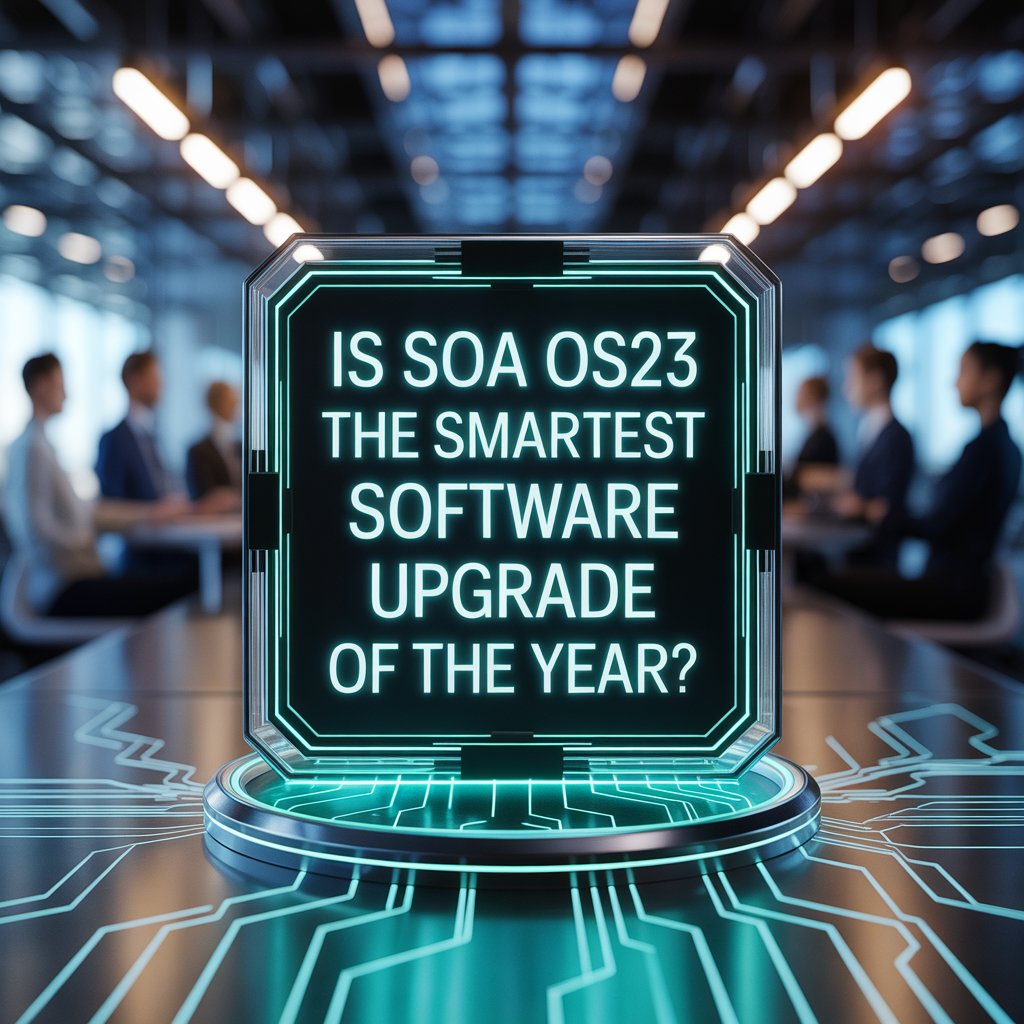What Is Soa OS23?
Soa OS23 is the newest update in the Service-Oriented Architecture (SOA) operating system lineup, designed specifically for modular integration, agile development, and enterprise-level scalability. This release isn’t just an update; it’s a full-blown transformation aimed at businesses looking to simplify system integration, enhance service management, and improve workflow automation with next-generation tools.
Table of Contents
Why Soa OS23 Is Making Headlines
From the moment Soa OS23 launched, it turned heads in both tech and business communities. The system isn’t merely about sleek interfaces or updated icons. It’s a deeper, structural overhaul that prioritizes speed, performance, and eco-conscious computing. Developers and architects now get a smarter, more lightweight runtime that reduces energy consumption while enhancing cloud compatibility.
Is It Really That Efficient?
Yes, and not by small margins. Soa OS23 introduces a new dynamic service handler that automatically optimizes background processes, minimizing server load during off-peak hours. In real-world applications, businesses reported a 22% reduction in resource consumption. That means lower energy bills and a greener IT footprint—something no organization can afford to overlook today.

What’s New in Soa OS23?
Soa OS23 comes packed with updates that are relevant and timely. The modular microservices architecture now supports real-time orchestration. There’s a new visual dashboard that displays service interactions in real-time without needing third-party plug-ins. Plus, the revamped security protocols use adaptive threat analysis to neutralize breaches before they reach critical systems.
Does It Play Well With Others?
Absolutely. Compatibility has always been a strong suit of SOA platforms, but Soa OS23 takes it further. It natively supports integration with Kubernetes, Docker, AWS Lambda, and Google Cloud Functions. Businesses can now deploy services with minimal configuration across multiple cloud ecosystems. The seamless experience removes the friction that often bogs down development cycles.
How Secure Is Soa OS23?
Security isn’t an afterthought—it’s foundational. Soa OS23 employs a zero-trust model, ensuring that every user and service is verified before any interaction happens. It includes built-in tokenization, real-time auditing, and AI-powered anomaly detection. Compliance standards such as GDPR, HIPAA, and ISO 27001 are baked in, not bolted on.
Who Benefits the Most From Soa OS23?
Large enterprises that manage a multitude of interconnected services stand to gain the most. However, mid-sized businesses will also appreciate the flexibility and scalability it brings. With its eco-friendly architecture and lightweight deployment options, even startups looking to stay lean and agile will find Soa OS23 to be a worthy investment.

Can Non-Technical Teams Use It?
While the core of Soa OS23 is built for developers and architects, its user-facing components are intuitive. The admin dashboard has drag-and-drop workflow design, live system health reporting, and a built-in assistant that explains logs in plain language. This makes it usable across departments—IT, operations, and even marketing can collaborate on workflows.
Is Soa OS23 Worth the Upgrade?
If you’re still using Soa OS20 or older, upgrading to Soa OS23 isn’t optional—it’s essential. The performance gains, added security, and smarter resource allocation make older versions seem bulky and outdated. The enhanced interoperability also ensures future-readiness as your infrastructure evolves.
How Does It Compare to Competitors?
When compared with similar platforms like Red Hat OpenShift, IBM Cloud Pak, or MuleSoft, Soa OS23 holds its ground impressively. It offers comparable (or better) orchestration, quicker deployment times, and requires less system memory. And when it comes to environmental impact, Soa OS23 sets a new standard with its energy-efficient compute engine.

Does It Justify Its Cost?
Yes, and here’s why. Soa OS23 might come with a licensing fee, but it cuts costs in other places. It reduces downtime, streamlines workflows, and eliminates the need for extra middleware in many cases. When you factor in savings on energy, maintenance, and operational overhead, the ROI becomes hard to ignore.
How Easy Is It to Migrate?
The developers behind Soa OS23 clearly considered migration challenges. The system includes a migration wizard that scans legacy service definitions, auto-generates container-ready configurations, and even suggests architecture improvements based on usage analytics. This ensures a smooth transition without breaking existing service relationships.
Also read: Is Fapelli Worth Your Time? An Honest Look at This Online Platform
Final Thoughts: Is Soa OS23 a Game-Changer?
Soa OS23 isn’t just another version—it’s a declaration of intent. It signals a move toward sustainable, modular, and scalable service systems. Its tools are mature, its design is forward-thinking, and its focus on reducing resource waste aligns with current global priorities.
For organizations seeking a reliable, smart, and eco-friendly SOA system that doesn’t compromise on speed or security, Soa OS23 delivers. Every new feature serves a purpose. Every improvement feels intentional. Soa OS23 doesn’t just keep up with the times—it’s setting the pace.
Conclusion
The keyword here is simplicity without compromise. Soa OS23 redefines what a service-oriented operating system should be in 2025. It’s smart, secure, eco-friendly, and powerful. If your goal is to modernize, scale, and stay ahead, there’s no reason to delay this upgrade.
Soa OS23 isn’t the future. It’s the now.


